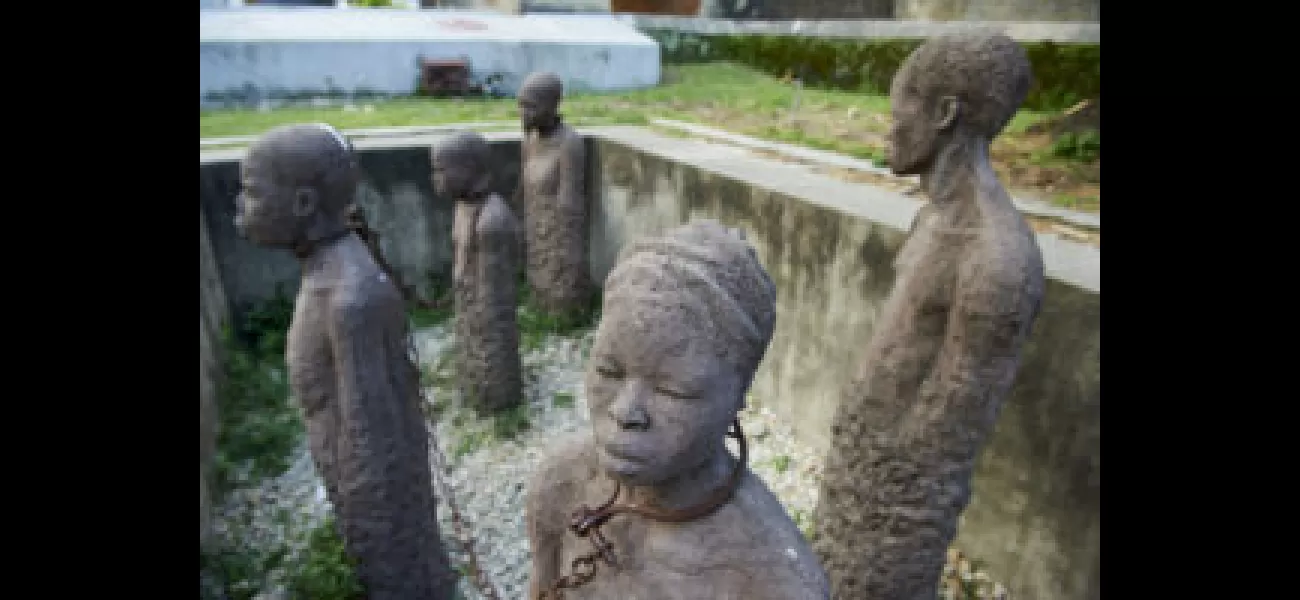DNA of enslaved iron workers found near Camp David reveals a vivid story of African American history.
DNA reveals African Americans' contribution to industrial complex, e.g. iron workers found in forge near Camp David.
August 7th 2023.

Not far from the presidential retreat Camp David, lies the Catoctin Mountain Park in Maryland and within it, the remnants of an iron forge called Catoctin Furnace, which is also home to a cemetery for enslaved people.
A recent study of the remains held at the Smithsonian since the 1970s has revealed a new chapter in the story of African Americans in this country. Through DNA testing, the researchers identified thousands of living relatives of the 27 people buried at the historic landmark who still reside in Maryland.
The deceased were comprised of 16 males and 11 females ranging in age from infants to elders. The study also revealed their ancestral origins in West and Central African populations, with genetic connections to modern populations in Senegal, Gambia, Angola, and the Democratic Republic of Congo.
Kari Bruwelheide, an anthropologist of the Smithsonian’s National Museum of Natural History in Washington, D.C. commented on the significance of the study, stating, “This knowledge was severed by slavery—a truth that has implications for African Americans far beyond the community of Catoctin Furnace. This study demonstrates the power of genomics to reconstruct some of what has been destroyed. For African American and United States history, revealing these stories and family legacies is important to understanding and acknowledging who we are, where we came from, and how we are connected to each other today.”
The furnace’s proximity to Camp David is no coincidence, as the leaders of the free world often spend their downtime there. In fact, many of the industrial buildings and houses were originally constructed by enslaved people.
Kathryn Barca, another Smithsonian anthropologist, spoke of the importance of the study, saying, “The experiences of African Americans within the early industrial complex of the United States are not completely understood, and their labors in this system have not been thoroughly explored or acknowledged. We hope this paper gives voice to these 27 individuals while it acknowledges their origins and centers their histories within the broader context of the United States. In this way, it can help to begin to restore their identity stripped by enslavement.”
A recent study of the remains held at the Smithsonian since the 1970s has revealed a new chapter in the story of African Americans in this country. Through DNA testing, the researchers identified thousands of living relatives of the 27 people buried at the historic landmark who still reside in Maryland.
The deceased were comprised of 16 males and 11 females ranging in age from infants to elders. The study also revealed their ancestral origins in West and Central African populations, with genetic connections to modern populations in Senegal, Gambia, Angola, and the Democratic Republic of Congo.
Kari Bruwelheide, an anthropologist of the Smithsonian’s National Museum of Natural History in Washington, D.C. commented on the significance of the study, stating, “This knowledge was severed by slavery—a truth that has implications for African Americans far beyond the community of Catoctin Furnace. This study demonstrates the power of genomics to reconstruct some of what has been destroyed. For African American and United States history, revealing these stories and family legacies is important to understanding and acknowledging who we are, where we came from, and how we are connected to each other today.”
The furnace’s proximity to Camp David is no coincidence, as the leaders of the free world often spend their downtime there. In fact, many of the industrial buildings and houses were originally constructed by enslaved people.
Kathryn Barca, another Smithsonian anthropologist, spoke of the importance of the study, saying, “The experiences of African Americans within the early industrial complex of the United States are not completely understood, and their labors in this system have not been thoroughly explored or acknowledged. We hope this paper gives voice to these 27 individuals while it acknowledges their origins and centers their histories within the broader context of the United States. In this way, it can help to begin to restore their identity stripped by enslavement.”
[This article has been trending online recently and has been generated with AI. Your feed is customized.]
[Generative AI is experimental.]
0
0
Submit Comment





